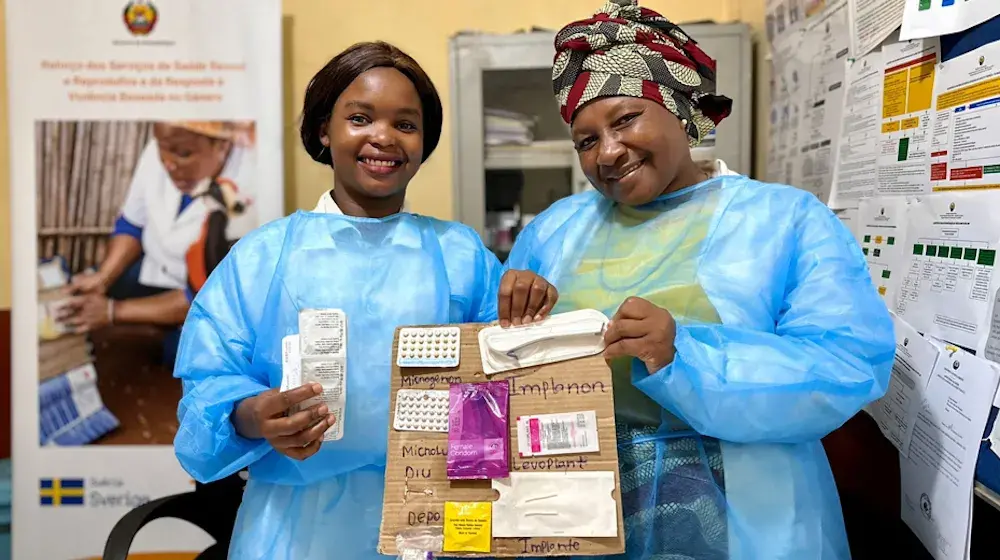‘Full access, full choice’ was the rallying call at a conference on family planning I attended recently in Addis Ababa, Ethiopia. The call echoes broader demands for bold action and leadership – particularly by governments – on access to sexual and reproductive health services for adolescents and young people in East and Southern Africa (ESA).
In the region, we have some specific challenges but there are also some important new opportunities on the horizon. Much of our attention in the recent past has been focused on the impact of HIV in the region, and rightly so. ESA remains the region most affected in global terms and accounts for 75 per cent of all new HIV infections among young people. However, in terms of the global HIV response, the pendulum is swinging back towards stronger integration with sexual and reproductive health, and this is our opportunity to get things right for today’s young people.
Where do we need to focus our efforts? Our regional population of 158 million adolescents and young people is growing fast and they all need access to appropriate, affordable and effective sexual and reproductive health services. In an ideal world of ‘full choice, full access’, all or most of these health services would be available where young people are located and available when they need them most. This includes condoms, modern contraception, vaccinations, diagnostic testing, treatment and care for STIs including HIV, pre- and post-natal care, safe abortion (where legal), and care and support in response to sexual violence.
If we focus on HIV prevention, the challenge is more specific. For most young people in the region, using a condom is not yet the norm: only 45 per cent of young men and 34 per cent of young women used a condom the last time they had sex – and some countries have rates as low as 4 per cent. While more than 70 per cent of young people know where to get an HIV test, only 40 per cent have ever been tested. Consider that there are 2.6 million young people in the region living with HIV, yet in only five countries are more than 75 per cent of those people on treatment.
Yes, some health services already exist, but they need to be safe, confidential, welcoming and geared to the needs of young people – and on this front, there is a lot more to be said and done.
What gets in the way of progress? Attitudes. Here in Africa, go to any gathering of young people talking about sexuality, health or rights and it’s not long before you hear stories about how they are being sent packing from a clinic by a health worker who has no time for the idea of a young person being sexually active, wanting to be safe or needing condoms and contraception. It may sound like a cliché but it’s a real problem that persists. While most young people may choose not to be sexually active until around 17-18 years, a significant number become sexually active earlier.
The data on early pregnancy are clear: 1 in 5 young women have started childbearing by age 17 in six countries in the ESA region. Respecting their fertility choices, these young women need to be reached before, during and after pregnancy. The same applies to adolescent boys and young men, whose sexual and reproductive health we need to be more aware of.
Furthermore, the region has a mismatch of conflicting policies, laws and practice on the age at which adolescents and young people can access services independently. The basic problem is that too often, adolescents are discriminated against because of their age, health, marital or legal status. For example, some countries have made access to HIV testing available to 12 year olds, whereas in others, basic services for contraception may only be accessible if you are aged 18 plus, or married.
HIV-positive young people often experience other barriers because of their health status. It’s unacceptable that anyone should be questioned about being sexually active or wanting a family because of their HIV status – but again, it happens. Sexual minorities, young people using drugs or those involved in sex work, all of whom have a right to health services, face yet more discrimination.
Taking up the discussions from Addis, on 6-7 December the region’s ministers of health and education will gather on the eve of the regional AIDS conference, ICASA 2013, in Cape Town to take the first steps towards what could be an historic political commitment on sexuality education and sexual and reproductive health services for adolescents and young people – and a turning point in the response to the HIV epidemic and teenage pregnancy. Having both the education and health sectors involved in the discussion represents a unique moment to break with ‘business as usual’, as schools and clinics deal with the same young people.
We know that comprehensive sexuality education needs to be supported by access to health services, once young people leave the classroom with the knowledge and confidence to make decisions about their health.
We want ministers to hear what adolescents and young people need and what they experience. Let’s get the message through: Full choice. Full access.
Harriet Birungi is Country Director, Population Council (Kenya), and a member of the High Level Group on the ESA Ministerial Commitment. For more information on the ESA Commitment, visit: www.youngpeopletoday.net


